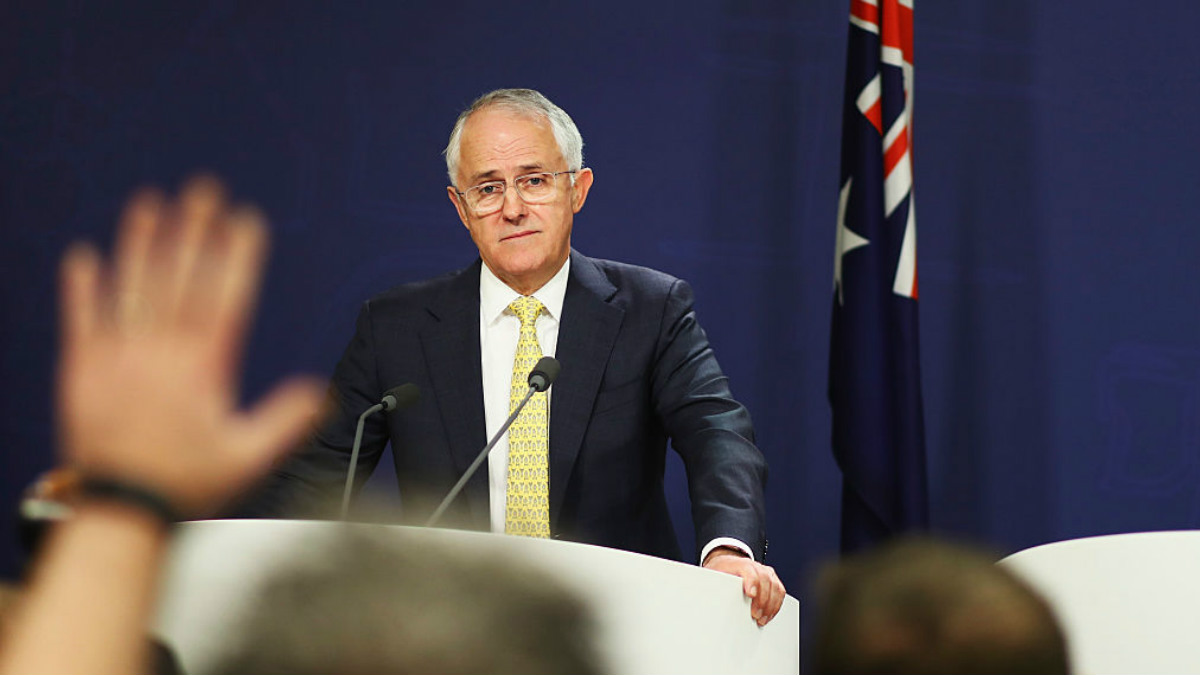Australian elections 'on a knife edge'
Neither of the major parties look likely to be able to form a majority government

A free daily email with the biggest news stories of the day – and the best features from TheWeek.com
You are now subscribed
Your newsletter sign-up was successful
The results of Saturday's Australian election are still too close to call, with the count failing to deliver either major party enough seats to form a majority government.
Counting was suspended in the early hours of Sunday morning, when the opposition Labor Party appeared to be leading with 72 seats, with the government's Liberal National Coalition holding 66 seats.
It has since resumed, but the Electoral Commission has warned it could take "up to a month" for the rest of the vote to be finalised.
The Week
Escape your echo chamber. Get the facts behind the news, plus analysis from multiple perspectives.

Sign up for The Week's Free Newsletters
From our morning news briefing to a weekly Good News Newsletter, get the best of The Week delivered directly to your inbox.
From our morning news briefing to a weekly Good News Newsletter, get the best of The Week delivered directly to your inbox.
Independents look likely to take five seats and a further seven seats are still too close to call.
The result means that both of the major parties will require the support of key independents to form even a minority government and will still have to deal with a hostile upper house.
Prime Minister Malcolm Turnbull had gambled on a double dissolution election in order to stabilise the Australian government after anti-union legislation was rejected twice in the upper house. However, after a marathon eight-week campaign, the result has brought yet more political chaos.
"Instead of ending Australia's dismal decade of politics, the election appears to have set it up for another round," says Sydney Morning Herald political editor Peter Hartcherd. "There is still a chance that the election might lead to sanity and stability, but hope is dimming fast."
A free daily email with the biggest news stories of the day – and the best features from TheWeek.com
Turnbull and Labor leader Bill Shorten have both reportedly started canvassing support from independent crossbench MPs. Despite the political uncertainty, Turnbull is confident he will be able to form a majority government.
-
 The environmental cost of GLP-1s
The environmental cost of GLP-1sThe explainer Producing the drugs is a dirty process
-
 Nuuk becomes ground zero for Greenland’s diplomatic straits
Nuuk becomes ground zero for Greenland’s diplomatic straitsIN THE SPOTLIGHT A flurry of new consular activity in Nuuk shows how important Greenland has become to Europeans’ anxiety about American imperialism
-
 ‘This is something that happens all too often’
‘This is something that happens all too often’Instant Opinion Opinion, comment and editorials of the day
-
 Epstein files topple law CEO, roil UK government
Epstein files topple law CEO, roil UK governmentSpeed Read Peter Mandelson, Britain’s former ambassador to the US, is caught up in the scandal
-
 Iran and US prepare to meet after skirmishes
Iran and US prepare to meet after skirmishesSpeed Read The incident comes amid heightened tensions in the Middle East
-
 Israel retrieves final hostage’s body from Gaza
Israel retrieves final hostage’s body from GazaSpeed Read The 24-year-old police officer was killed during the initial Hamas attack
-
 China’s Xi targets top general in growing purge
China’s Xi targets top general in growing purgeSpeed Read Zhang Youxia is being investigated over ‘grave violations’ of the law
-
 Panama and Canada are negotiating over a crucial copper mine
Panama and Canada are negotiating over a crucial copper mineIn the Spotlight Panama is set to make a final decision on the mine this summer
-
 Why Greenland’s natural resources are nearly impossible to mine
Why Greenland’s natural resources are nearly impossible to mineThe Explainer The country’s natural landscape makes the task extremely difficult
-
 Iran cuts internet as protests escalate
Iran cuts internet as protests escalateSpeed Reada Government buildings across the country have been set on fire
-
 US nabs ‘shadow’ tanker claimed by Russia
US nabs ‘shadow’ tanker claimed by RussiaSpeed Read The ship was one of two vessels seized by the US military